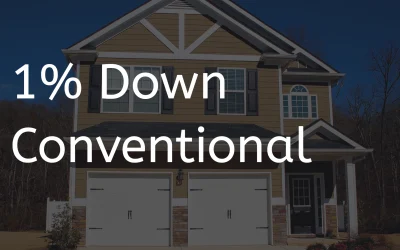For many people, owning a home is a dream that requires financial planning and careful consideration. One of the most important aspects of homeownership is understanding how mortgage payments are calculated. While the process may seem complex, this blog post will simplify it, providing you with a clearer picture of what goes into determining your monthly mortgage payment.
Principle and Interest: The Core Elements of Your Mortgage Payment
When you take out a mortgage to purchase a home, your monthly payment is typically comprised of two main components: principal and interest. The principal is the amount of money you borrow from the lender to buy the property. Meanwhile, the interest is the cost the lender charges for lending you the money.
To calculate the monthly payment, lenders use a formula based on the loan amount, interest rate, and term of the loan. The interest rate is also expressed as an annual percentage rate (APR) and is a key factor in determining the amount of interest paid over the life of the loan.
Amortization: Spreading Out Repayments
Mortgage payments are usually spread out evenly over a predetermined period of time, known as the loan term. This method is called amortization. The most common loan terms are 15 and 30 years, though other options are available. Longer loan terms generally result in lower monthly payments but result in paying more interest over time.
When you make a mortgage payment, a portion of it is allocated towards reducing the principal balance, while the remainder goes towards paying the interest. Over time, the ratio of principal to interest in each payment gradually shifts, with a larger portion paying down the principal as the loan approaches its maturity.
Property Taxes and Insurance: Additional Costs to Consider
In addition to the principal and interest, your mortgage payment may include two other crucial expenses: property taxes and homeowners insurance. These costs are often rolled into your monthly payment, typically in an escrow account controlled by the lender, to ensure they are paid on time.
Property taxes are assessed by local authorities and are based on the value of your property. The amount can vary depending on your location and the assessed value of your home, so it’s essential to consider this when determining the price range for a new home.
Homeowners insurance is a crucial protection that covers potential damages to your property. Lenders require homeowners insurance to safeguard their investments. The cost of insurance is determined by factors such as the location, size, and value of your home, as well as the desired level of coverage and the client risk factor.
Private Mortgage Insurance (PMI): A Common Requirement
If you make a down payment of less than 20% of the home’s purchase price, lenders usually require you to pay for private mortgage insurance (PMI). PMI provides protection to the lender in case you default on your mortgage payments.
The cost of PMI is typically a percentage of the loan amount and is added to your monthly payment. Once you reach 20% equity in your home, either through mortgage payments or appreciation, many lenders will allow you to cancel PMI.
Calculating Your Average Monthly Payment
To understand how mortgage payments are calculated, let’s consider an example. Suppose you’re purchasing a home worth $300,000, and you plan to make a 20% down payment ($60,000). You secure a mortgage loan for the remaining $240,000 with a fixed interest rate of 6.999% (7.105% APR) for 30 years.
Using an online mortgage calculator, you find that your monthly principal and interest payment would be approximately $2,296.56. You break this amount down as follows:
– Principal and Interest: $1,596.56 – This is the amount that goes towards paying off the loan over time.
– Property Taxes: $500 – The annual property tax of approximately 2% is divided by 12 months.
– Homeowners Insurance: $200 – The cost of insurance is split into monthly payments. Homeowner insurance varies greatly and we always suggest getting a quote ahead of time if possible.
Therefore, your total monthly mortgage payment would be around $2,296.56. However, keep in mind that this is just an estimate, as the actual amount may fluctuate depending on various factors.
Home Owners Association Dues: Don’t forget this
HOA dues, or Homeowner Association dues, refer to the amount of money paid by homeowners who reside in a community governed by a Homeowners Association. This is not part of your monthly payment and is paid directly to the HOA. These dues are typically collected on a monthly or annual basis and serve to fund the maintenance, management, and improvement of shared amenities and common areas within the community. Examples of expenses covered by HOA dues include landscaping, trash collection, security, repairs, and insurance for shared facilities like swimming pools, parks, and community centers. The amount of HOA dues varies from one community to another, depending on factors such as the size of the development, amenities provided, and the level of services required.
Conclusion
Understanding how mortgage payments are calculated is essential for anyone looking to buy a home. By knowing the main components – principal and interest – as well as considering property taxes, homeowners insurance, and potential PMI costs, you can gain a better understanding of the financial responsibility that comes with homeownership.
Remember, mortgage payments are customizable based on the terms of the loan, down payment, and other factors. Consulting with a mortgage broker is highly recommended to ensure a clear understanding and accurate calculations for your specific mortgage situation. With careful planning and a solid understanding of the process, you’ll be well-prepared to navigate the exciting journey toward homeownership.
Breaking Barriers: A Revolutionary Loan Option for First-Time Homebuyers
Unlocking Homeownership: The 1% Down Mortgage Revolution In today's challenging real estate market, many aspiring homeowners find themselves trapped between the dream of owning a home and the financial hurdles of traditional down payments. However, a groundbreaking...
Boost Your Credit Score: Essential Steps to Take Before Homeownership
Embarking on the journey to homeownership is an exciting milestone, but before you can unlock the door to your dream home, you need to ensure your financial foundation is solid. One of the most crucial elements in this process is your credit score. Your credit score...
Trigger Leads 101: What They Are and How to Make Them Stop
A trigger lead is a type of marketing lead sold by credit bureaus to lenders and mortgage companies. When someone applies for a mortgage and their credit report is pulled, it can act as a "trigger" for the credit bureaus to sell that consumer’s information as a lead...




